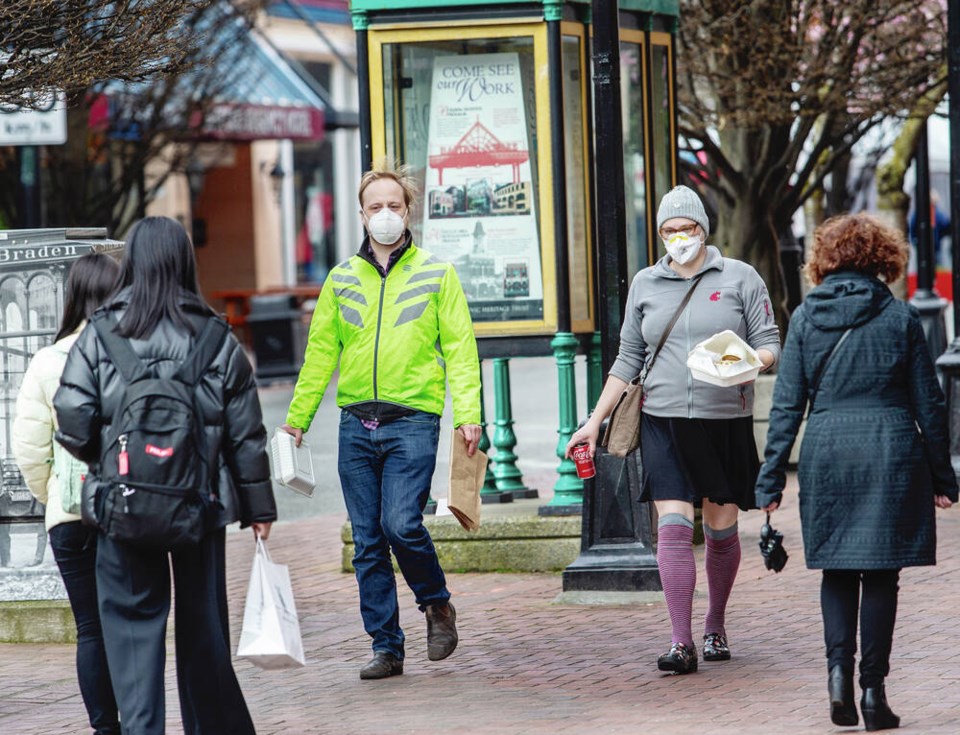It’s that time of year again when we start to think about respiratory illness, like flu and COVID-19, and what we can do to protect ourselves and our loved ones.
And now there’s a new COVID-19 strain to consider.
It’s called XEC, but what is it and will it cause a surge in cases? Experts say it’s unlikely to cause more severe illness but there could be more cases over the fall and winter season.
Here are some of the questions you may have concerning XEC:
What is the XEC strain of coronavirus?
XEC is a new variant of SARS-CoV-2, the virus that caused the COVID-19 pandemic. The Public Health Agency of Canada says it is a hybrid of Omicron subvariants KS. 1.1 and KP. 3.3.
In an email Friday, a spokesperson for the World Health Organization said XEC is variant that is being monitored.
XEC is a recombinant of two variants (KS. 1.1 and KP. 3.3) that have both descended from JN. 1, a variant of interest, the WHO said. Recombination is the process through which two variants, infecting the same host, exchange genetic material to create a new variant, called a recombinant variant.
The variant appears to spread more easily than previous ones but cases are not as severe as those during the pandemic.
SARS-CoV-2 has changed or mutated many times. There have been several new variants that are different from the original virus, such as Alpha, Beta, Gamma, Delta, and Omicron variants.
Where is it spreading?
XEC was first detected in Germany in June and has spread internationally, with the majority of cases in Europe.
The U.S. CDC said Friday that the XEC strain made up 5.7 per cent of new cases in the U.S. in the last two weeks.
According to WHO, 28 countries had reported sequences of this variant by Sept. 18.
Does Canada have any cases? What about B.C.?
The Public Health Agency of Canada says a small number of XEC variants has been detected in Canada. The agency doesn’t believe it will have a severe impact on people.
The dominant strain in Canada is still KP. 3.1.1, which Health Canada estimates makes up more than 67 per cent of cases.
As for B.C., the answer is yes.
Dr. Linda Hong, a medical director with the B.C. Centre for Disease Control, said B.C. monitors for variants by studying the genetic makeup of positive COVID-19 PCR test samples and wastewater. This helps scientists understand which variants are circulating and how that changes over time.
She said although B.C. has not detected the XEC variant through wastewater monitoring, 42 cases of XEC have been identified through genomic sequencing of positive samples.
What are the symptoms?
At this point, it’s likely the symptoms will be similar to other variants. According to Health Canada, typical COVID-19 symptoms include sore throat, runny nose, sneezing, new or worsening cough, shortness of breath or difficulty breathing, fever, muscle or body aches, and headache.
Can I get this strain if I already had COVID?
Yes. People who have had COVID-19 can get infected again with new variants but there are a number of actions you can take to help prevent COVID-19 and serious illness such as staying up to date on vaccinations and stay home when you are sick.
Scientists say people who are vaccinated are less likely to end up in the hospital from COVID than people who are not vaccinated.
The B.C. CDC advises people wear a mask in places where it is required and if you are sick and cannot stay away from other people.
Will the strain be included in the next vaccine?
Unlikely, but experts agree you should be protected with the latest vaccine.
The Public Health Agency said there continues to be no evidence of increased severity through laboratory-based or clinical findings.
“We expect the newly updated JN.1/KP.2 vaccines will help protect against serious disease caused by related strains including XEC. Vaccine effectiveness from the updated vaccines will be monitored going forward,” the agency said in an email.
Hong explained that the XEC variant is a type of Omicron variant, and Health Canada recently approved an updated mRNA vaccine designed to target the KP. 2 variant, also an Omicron variant.
She said that means the updated vaccines that will be available in B.C. this fall “will offer good protection against severe illness.”
“Getting updated COVID-19 and influenza immunizations this fall are key to preventing severe illness and limiting the spread of respiratory infections, especially for people at higher risk of severe illness,” said Hong.
Immunizations will be available for free to anyone six months and older. More details about fall immunizations will be available soon.



